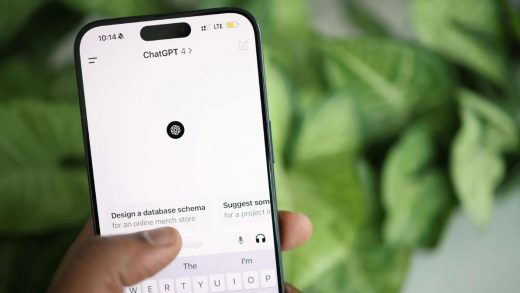:format(webp)/https://www.thestar.com/content/dam/thestar/entertainment/music/2023/06/23/music-as-collaboration-why-jenn-grant-shared-the-writing-on-her-album-champagne-problems/main_jenn_grant_champagne_problems.jpg)
There was a time in Jenn Grant’s career when the idea of writing a song with someone else felt embarrassing, even disingenuous.
“I used to really shy away from the idea,” says the folk-pop singer-songwriter, who is based in Lake Echo in Nova Scotia. “I felt like the songs had to kind of drop down into your soul or something. And you have to be alone and it has to be this really private thing.”
But that perspective didn’t last long. Over the years, the multiple Juno-nominated CBC darling has collaborated with other Canadian artists on her albums such as Buck 65, Ron Sexsmith and Sarah Harmer. “It’s a skill to open up and to be able to share that experience and see what you can come up with,” said Grant, 42. “It’s a bonding experience. And my favourite thing is bonding with people.”
For “Champagne Problems,” her eighth album, released this week, Grant found a way to do that in spite of a pandemic that forced the world into isolation. She reached out to other musicians from around the country, ensuring it wasn’t just people she already knew — “I didn’t want it to be just my best friends” — to see if they’d co-write a song with her.
The project was also driven by a sudden swell of patriotism brought on by being confined within our borders. “One of the things that I got out of the pandemic was falling in love with the idea of being a Canadian artist and wanting to celebrate that.”
Grant has also become more conscious of capturing moments in time since becoming a mother in 2018 (she has two boys, Gus, four and a half, and Hank, three). “I’ve been feeling very nostalgic for the present.”
The 13 songs on the album span different genres (country, disco, folk), which is in keeping with how Grant operates. “My records never fit into one genre,” she said. “Part of me sometimes wishes I could make a record that’s just super chill or whatever. But that never happens because I love to go in different directions.”
“Champagne Problems” is her first album as a producer alongside her partner, Daniel Ledwell, and the first on which every song was written with someone else. Those collaborators include Tim Baker, Kevin Drew, Bahamas, Aquakulture, Joel Plaskett, Dan Mangan and Kim Harris.
Grant also duetted with Amy Millan, singer and guitarist in Montreal band Stars, on “How I Loved You,” a melancholic, piano-driven ballad that Grant co-wrote with Hannah Georgas. Considered the centrepiece of the album, it’s the first time the friends have sung together. They’ve known each other for over a decade and Millan pitched the idea over text late one night after listening to Grant’s 2021 song “Hank Moon,” in which she name-checks Millan.
“She’s just so authentic and she has one of the most beautiful voices in the country,” said Millan.
“And my favourite thing to do is to sing with other people. It’s probably the reason I haven’t made a solo record in 12 years. When you’re singing in harmony, there’s a sense of peace,” she added. “Even the word harmony is a synonym for peace. So it brings a lot of comfort to my nervous system.”
And did the experience of singing with Grant live up to her expectations?
“Beyond,” said Millan. “I really do think it’s one of the most beautiful songs I have ever been privileged to be a part of.”
When Millan got the song back, she listened to it 73 times. “I just cried and cried and cried. And then I sent it to my mom.” Not only did her mother also tear up hearing it, so did Broken Social Scene’s Kevin Drew, who loved it so much he directed the video for it.
Drew also co-wrote “Lion’s Mane” with Grant, which explores difficulties in her relationship with her father, and made a point of pushing her to be more revealing with her lyrics.
“In the past, I was more comfortable speaking in metaphors,” Grant said, as a way of protecting the people she was writing about. But Drew suggested going all in. “He would quote something that Gord Downie had said to him and say, ‘You need to go deeper.’ He was encouraging me to reveal myself in a more authentic way.”
Doing so can feel like an act of vulnerability but, at this point in her career, Grant is interested in her music acting like a soothing balm to her listeners, a therapeutic way of helping people process feelings of loss and heartbreak.
“These are universal themes and when you know that someone else has kind of opened up their heart to reveal something that you relate to, I think that there is an unspoken connection between the artist and the listener.”
It also gives Grant a sense of purpose. “I read a quote of Sarah Harmer’s that said music is a service. And that resonated with me. I want to be of service in my life.”
JOIN THE CONVERSATION
does not endorse these opinions.
:format(webp)/https://www.thestar.com/content/dam/thestar/entertainment/music/2023/06/23/music-as-collaboration-why-jenn-grant-shared-the-writing-on-her-album-champagne-problems/jenn_grant_portrait_champagne_problems.jpg)
:format(webp)/https://www.thestar.com/content/dam/thestar/entertainment/music/2023/06/23/music-as-collaboration-why-jenn-grant-shared-the-writing-on-her-album-champagne-problems/jenn_grant_daneil_leadwell.jpg)
:format(webp)/https://www.thestar.com/content/dam/thestar/entertainment/music/2023/06/23/music-as-collaboration-why-jenn-grant-shared-the-writing-on-her-album-champagne-problems/amy_millan_stars_jenn_grant.jpg)
:format(webp)/https://www.thestar.com/content/dam/thestar/entertainment/music/2023/06/23/music-as-collaboration-why-jenn-grant-shared-the-writing-on-her-album-champagne-problems/jenn_grant_pool_champagne_problems.jpg)
:format(webp)/https://www.thestar.com/content/dam/thestar/entertainment/music/2023/06/23/music-as-collaboration-why-jenn-grant-shared-the-writing-on-her-album-champagne-problems/jenn_grant_tim_baker.jpg)


